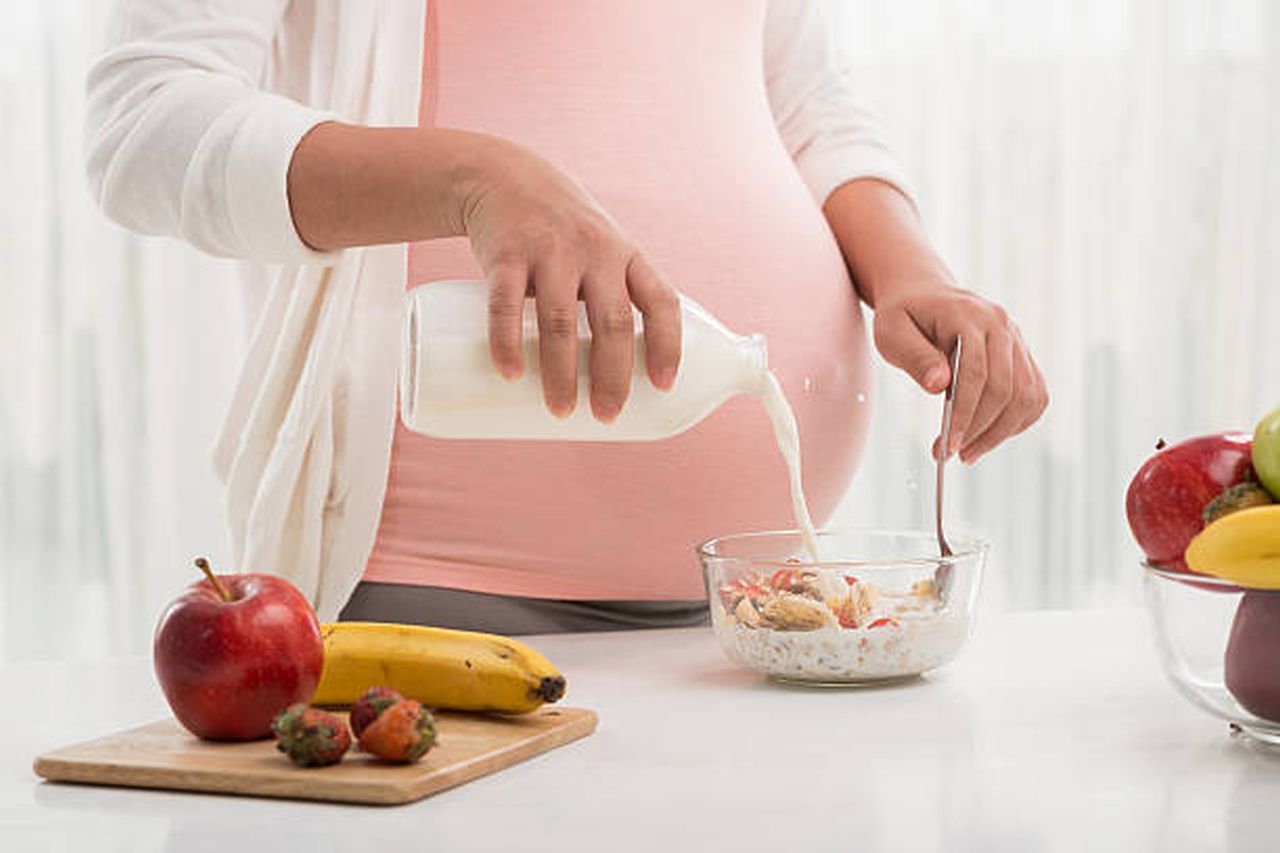Maintaining a healthy pregnancy is not always simple.
There are numerous contributors, including the mother's pre-pregnancy health, her food and lifestyle, and her actions after giving birth.
It's important to equip parents who are having children for the first time or who want their child to be raised in a positive household with information on healthy pregnancies so that they can instil these values in their children when the time comes.
This blog post will cover how parents should care for themselves while growing a baby inside of them.
Pregnancy Health Advice
Women are often motivated to improve their health and achieve a healthy weight when pregnant since it is such an exciting period.
This article will teach you how to enhance your diet and exercise routine during pregnancy and after the baby is delivered.
If you aren't expecting but are considering becoming so, you may find these suggestions useful. Making adjustments today will allow you to establish healthier routines in the future.
You will set a positive, lifelong example for your loved ones and provide your child's best possible start.
Healthy Weight

This article will discuss the importance of gaining appropriate weight gain during pregnancy and why it is so important.
For the baby to develop normally, the mother must gain a healthy weight throughout pregnancy.
The health of both you and your unborn child is at risk if you gain either too much or too little weight during pregnancy.
Weight gain during pregnancy is associated with an increased risk of hypertension and gestational diabetes.
It also makes you more likely to develop type 2 diabetes and hypertension as you age. In addition, the risk of complications during pregnancy increases in women who are overweight or obese before becoming pregnant. As an added risk, you could be more likely to undergo a caesarean delivery (C-section).
Women who gain a healthy weight throughout pregnancy tend to have deliveries with fewer complications. Regaining your pre-pregnancy weight after giving birth may be facilitated as well.
Excess weight during pregnancy within the healthy range has been shown to reduce the risk of obesity and related health issues in both the mother and her child.
Looking for baby nursery storage solutions. Check out the range at My Baby Nursery.
If I get pregnant, how much weight should I expect to gain?
Your pre-pregnancy body mass index (BMI) will determine how much weight gain is healthy. Your body mass index (BMI) is the ratio of your weight to your height. The body mass index (BMI) can be determined with the help of an online formula.
To succeed, weight increase must be done very gradually. Eating for two is a concept that has no basis in reality. Your baby doesn't require extra calories during the initial three months when they are just the size of a walnut. Recommended weight gain rate
- The first three months: 1-4 lbs.
- Weight gain of 2–4 pounds per month for the last four months before birth
If you're concerned about gaining too much weight, consult your doctor.
Establish a plan for your weight increase with their help. Think about your age, size, and general health. Make sure to bring a record of your weight to all doctor's appointments and at-home weigh-ins.
Do not diet when pregnant. Your infant needs nutritious foods and low-calorie drinks to develop normally (particularly water).
A few pregnancies are preceded by a brief period of weight loss for the expecting mother. If this happens, you should consult a doctor.
Staying Healthy During Pregnancy
You probably already know some of the most important pregnancy advice regarding taking care of both you and the baby if you are pregnant or planning on becoming pregnant:
Rest, avoid alcohol and tobacco products, and cut down on your sleep time if you can. More advice is provided here, covering anything from vitamin intake to the best way to dispose of cat litter during pregnancy.
Make sure you supplement your diet with prenatal vitamins.
It is advisable to start taking prenatal vitamins even before you conceive.
During the first month of pregnancy, your baby's neural cord grows; this is part of the nervous system that will eventually become the brain and spinal cord. For this reason, you must start getting the nutrients you need, such as folic acid, calcium, and iron, right away.
You can acquire prenatal vitamins through your doctor or buy them at any drugstore.
If you get sick while taking these, consider taking them after night or with a small meal. Afterwards, it is helpful to chew gum or hard candy.
Exercise
Physical activity benefits your health in many ways, including helping you manage your stress and weight, enhancing your circulation, elevating your mood, and even allowing you to sleep better at night.
It is recommended that pregnant women participate in a prenatal fitness class or walk for at least 15 to 20 minutes each day at a slow to moderate pace in cool, shady places or inside.
Most pregnant women can safely engage in activities like Pilates, yoga, swimming, and walking, but it is important to get your doctor's approval before beginning an exercise regimen.
Maintain a 30-minute workout routine six days a week. But pay attention to your limits and avoid pushing yourself too hard.
No alcohol.
Avoid alcoholic beverages before, during, and after pregnancy. Fetal alcohol spectrum disorder is more likely to occur in pregnancies where alcohol was consumed (FASD).
Abnormal facial characteristics, significant intellectual disability, and behavioural problems are all possible outcomes of FASD.
Even before a woman realises she is pregnant, alcohol consumption can negatively affect the developing baby.
As a result, women who are pregnant or trying to get pregnant should likewise abstain from alcohol.
Avoid smoking at all costs.
Both you and your unborn kid are at risk when you smoke. Premature birth, low birth weight babies, and stillbirths are only some of the other negative outcomes heightened by this.
Get moving.
Exercising regularly or finding other methods to keep active will help you and your unborn child stay healthy. Your doctor can tell you how much exercise is safe for you.
Vaccinate yourself against the flu.
Fetal problems are more likely when a pregnant woman has the flu.
You and your unborn child can both benefit from receiving the flu vaccine. Make an appointment with your doctor to discuss receiving a flu vaccination.
Prepare a Birthing Plan
So, you're set on hiring a doula. Plan on using the epidural? You should write your requests and provide a copy to all helping with the delivery.
An American Pregnancy Association suggests the following points be included in your birth plan:
- Whom you want present, such as the baby's older siblings or other relatives
- Do you prefer lying down, on your side, or in any other position during labour?
- The one-of-a-kind garments you've always wanted to wear
- Irrespective of whether you're looking for background noise or a specific topic of interest,
- How much and what kind of pain medicine do you want
- What to do if problems develop
Study
You can benefit from a birthing preparation programme even if this is not your first child.
You will have the opportunity to learn more about labour and newborn care, and you will be able to ask specific questions or voice any concerns that you may have.
You'll also have a better understanding of the facility and its employees.
This is also a great moment to review your family's medical background. You should tell your doctor if you've had any complications in previous pregnancies or if anyone in your family has been affected by a congenital condition.
Performing Kegel exercises
The pelvic floor muscles maintain your bladder, bowels, and uterus; Kegel exercises strengthen these muscles.
If you perform this easy exercise correctly, you can ease your labour and delivery and avoid incontinence issues.
The best part about practising Kegels is that no one will know if you are doing them in the car, at your desk, or in the grocery store line.
Here's the proper way to execute them:
- When you go to the restroom, try to simulate the stoppage of urine by squeezing.
- Three seconds on the hold, three seconds at rest, and so on.
- Ten times more
Get Rid of Harmful Chemicals
Tobacco, alcohol, illegal substances, and solvents like paint thinners or nail polish removers should all be avoided during pregnancy due to their links to congenital disabilities, miscarriage, and other complications.
Cigarette smoking, for instance, is linked with preterm birth and other difficulties because it reduces oxygen flow to the mother and baby.
Tell your doctor if you need help quitting smoking, drinking, or taking drugs. Tobacco cessation programmes for pregnant women might be recommended by your doctor, who can also provide guidance and support.
Rotate the Duties That You Have to Do
Even seemingly innocuous activities, such as cleaning the bathroom or picking up after the family pet, can pose serious health risks during pregnancy.
You and your unborn child are particularly vulnerable to the risks associated with handling hazardous materials, heavy lifting, and bacterial infections. Hopefully, the following items can be crossed off your list:
- Toilsome labour
- Step stools and ladders are used.
- Scooping litter boxes
- Through the use of toxic substances
- Long periods of standing, especially close to a warm stove, might be harmful.
You should also wash your hands after dealing with raw meat and consider wearing gloves if you work in a yard where cats have been.
Be sure to Double-check Your Medications.
Before trying any "natural" or "over-the-counter" therapies, see your doctor or midwife.
Studies show that NSAIDs, like ibuprofen, might increase the chance of miscarriage and damage foetal blood vessels. Thus they should be avoided at all costs.
Track Weight Gain
We all see that you're splitting your meal. However, gaining weight rapidly can make it difficult to shed weight in the future.
Low birth weight, associated with several developmental issues, is another risk when a baby isn't acquiring enough weight throughout pregnancy.
This past week, the Institute of Medicine (IOM) released updated recommendations for maternal weight growth.
According to the Institute of Medicine, here's how a woman's pre-pregnancy BMI (body mass index) should determine her weight gain while carrying a single child.
- Obesity: Put on 28-40 pounds
- Put on about 25–35 lbs.
- If you are overweight, you should aim to gain 15-25 pounds.
- The obese should aim to gain between 11 and 20 pounds.
Regular doctor visits can help ensure that your weight gain is healthy.
Baby nursery decorative decor unlike any other. Check out My Baby Nursery's range here.
Get Some New Shoes.
Finally, a good reason to go shoe shopping! Your feet may swell as much as your bulge as your pregnancy progresses.
For one thing, when you get heavier, your centre of gravity shifts, and you become more top-heavy; your feet take on an abnormal amount of stress.
Extra weight bearing down on the feet for an extended period can lead to uncomfortable overpronation or flattening feet. In addition, your feet and ankles may enlarge if you retain fluid.
Therefore, it is crucial to wear loose-fitting, comfortable shoes throughout pregnancy.
Many new mums discover they still require a larger shoe size a while after giving birth, so don't be afraid to buy a size up if you think you might.
And remember to prop your feet up regularly throughout the day to alleviate weariness and reduce swelling in your lower extremities.
Consider Your Spa Style
You should treat yourself well during pregnancy, but be cautious. For example, do not go inside a sauna because the heat can cause you to overheat.
Similarly, hot tubs are not recommended for pregnant women because it only takes 10 to 20 minutes for your body temp to reach 104 degrees Fahrenheit (around the limit of what is deemed safe for pregnant women).
It is important to consult your massage therapist to make sure that only safe essential oils are used during pregnancy, as some of them might trigger uterine contractions, especially in the first and second trimesters.
Clary sage, juniper, and rosemary are all forbidden herbs. Do not take any over-the-counter medications or supplements that contain these herbs without first checking with your obstetrician and midwife.
More Water

Your blood volume grows by as much as 50 per cent to accommodate the increased demands placed on it by the placenta, where it carries oxygen and nutrition to your developing baby and where it is removed along with waste and carbon dioxide.
Then, drinking additional liquids will assist in sustaining that weight gain. Finally, drinking water can avoid constipation, haemorrhoids, UTIs, exhaustion, headaches, edema, and other painful pregnancy symptoms.
Aim for 8 to 10 glasses daily; if you find the taste unpleasant, mask it with a dash of flavouring, such as lime or citrus juice.
Consume Foods High in Folate.
In addition to the recommended 8-10 glasses of water daily, a diet high in folate-rich foods, including fortified cereals, asparagus, legumes, wheat germ, orange, and orange juice, should be consumed throughout five or six healthy meals.
In addition to being essential in producing new red blood cells, folic acid is also essential in developing a baby's neural tube (which surrounds the spinal cord).
Eat Fruit to Recharge
Due to the potential dangers to mother and child, experts advise avoiding caffeine as much as possible while pregnant.
However, reducing consumption can be difficult, especially if you have a morning coffee ritual. Fruit is a great source of natural sugars, which can provide a rapid energy boost.
Bananas and apples are foods high in natural sugars that can provide a quick energy boost.
Go Fish
Researchers in 2007 studied over 12,000 children and concluded that those whose mothers consumed the most fish while pregnant had smarter kids with stronger motor and communication skills.
Experts attribute this to fish's abundance of omega 3s, a vitamin essential for brain growth. One caveat is that some fish contain mercury, which is harmful to humans of all ages, especially infants.
To be on the safe side, pregnant women shouldn't consume more than 12 ounces of fish per week, according to the FDA.
It would help if you ate more canned light tuna, prawns, fish, pollack, and catfish. It's best to avoid mercury-rich fish, including swordfish, sharks, king mackerel, and tilefish.
Put on Sunblock
Sunburn or chloasma, the dark, blotchy areas that may form on the face, are more likely to occur during pregnancy because of the increased sensitivity of the skin.
Wear protective clothing and accessories like a hat, sunglasses, and sunscreen with just an SPF of 30 or higher (many companies now provide chemical-free versions).
An American Pregnancy Association advises against using tanning beds while pregnant, despite the lack of evidence linking its use to harm for the unborn child.
Maintain Hygiene
By washing your hands regularly, you can reduce your risk of spreading illnesses that might harm your unborn child, including Group B streptococcus, Fifth disease, CMV, and chickenpox.
When you don't have access to running water, ethyl alcohol-based hand sanitisers are your best bet. They also prevent the spread of most infectious diseases.
Travel Smart
You can book the flight, but you should still be careful. When you are between 14 and 28 weeks pregnant, you are likely past morning sickness, and the danger of miscarriage or premature birth is low, making this the ideal time to take a flight.
If you are pregnant, you should still discuss your travel plans with your doctor and double-check that the airline has no restrictions against pregnant passengers.
To prevent blood clots from forming during flight, passengers should drink lots of fluids, get up, and move around every half an hour.
Using the restroom and having more legroom if you're sitting on an aisle is more convenient.
Keep using a seatbelt whenever you're in a car. In addition, the National Highway Traffic Safety Administration recommends that the shoulder harness sits over the collar bone.
The lap section must be positioned on the hips and over the upper thighs, never higher than the waist.
Further, expectant mothers should avoid sitting in front of an airbag.
Accept Your Cravings Occasionally
Nobody understands what causes the pregnancy to bring on cravings.
Some professionals believe they are nature's way of supplying any nutrients a pregnant woman may lack. However, some people argue that they are just emotional.
Regardless, giving in to cravings is typically OK so long as you consume a nutritious diet.
It's important to know which foods to avoid and to restrict your intake of others (like ice cream).
Raw or undercooked meat or eggs, brie, feta, or other unpasteurised cheeses, herbal teas, and raw sprouts are all foods to avoid.
Connect with People
Participate in a prenatal yoga and childbirth class, join a local parents club or sign up for a discussion forum for expectant mothers to chat with others like themselves.
Your downs and ups during pregnancy can be less daunting with the help of other women who are going through the same things you are.
You'll still benefit from these friendships after giving birth.
Understand Postpartum Depression
Despite the prevalence of postpartum depression, 10%-20% of pregnant women experience signs of severe depression, according to March of Dimes.
If you're pregnant, this could put you at risk of giving birth prematurely. Consequently, consult a medical professional if you experience unwarranted negative emotions such as sadness, anger, or guilt and if you lose interest in formerly pleasurable activities or sleep excessively.
Antidepressant medication, attending therapy sessions, or both are all viable options.
It is important to consult with a doctor who is knowledgeable about pregnancy-related mental health issues because not all antidepressants are safe for women who are pregnant.
Call the Doctor When Needed
It's normal to feel overwhelmed by all the new information you'll receive throughout your first pregnancy. So how does one determine if or not an ache is normal versus abnormal?
It is recommended by the Centers for Disease Control & Prevention (CDC) that you seek medical attention if you have any of the following symptoms:
- Any form of pain
- Muscle spasms that are quite painful
- Constant contractions every 20 minutes
- Fluid loss or bleeding from the vaginal area
- Experiencing dizziness or fainting
- Inability to catch one's breath
- Sudden, severe chest pain
- Chronic puking and nausea
- Edema, difficulty walking (swelling of joints)
- Baby's decreased activity
Give Yourself a Break
And if you don't have time for yourself now, wait until the baby arrives.
If you're having trouble sleeping, try taking naps throughout the day and seeing a doctor if that doesn't help.
A little self-care:
- Lunchtime pedicure.
- Get together with the ladies for a much-needed night out.
- Walking quietly can help you unwind and relieve tension, which benefits you and the baby.
Time your pregnancy successfully.
A successful pregnancy and delivery are more likely if you become pregnant while at your healthiest.
This indicates that women should check their health and fertility before getting pregnant and also consider their age.
Premature birth is more common in mothers who have their first child before age 16 or beyond 40.
Premature birth is also more common in women who become pregnant again too quickly (within 18 months of giving birth).
We have the best range of decorative decor for your baby's nursery. Check it out here.
Conclusion
The mother's preexisting conditions, diet and lifestyle, and postpartum practises all play a role in how easy or difficult it is to have a successful pregnancy. How expecting parents may take care of themselves is the topic of this blog post. It will show them how to improve their eating habits and physical activity levels before, during, and after giving birth. The article will also explain why healthy weight gain during pregnancy is crucial. Pregnancy-related problems, such as high blood pressure and diabetes, are more likely in women who gain weight during their pregnancies.
Birth problems are less common among women who gain a healthy amount of weight during pregnancy. Obesity and its related health risks are reduced in both mother and child when maternal weight gain stays within a reasonable range during pregnancy.
How much weight gain is considered healthy during pregnancy depends on the woman's BMI before she became pregnant. To maximise the chances of success, gaining weight should be done slowly, with a goal of gaining between 1 and 4 pounds each month for the first three months. Talk to your doctor about a plan for your weight gain if you're worried about putting on excess pounds. Pregnant women should limit their sleep time, keep away from alcoholic beverages and cigarette items, and get enough rest.
Before you even start trying to conceive, you should begin taking prenatal vitamins to supplement your diet. Take these at night or with a light meal if you feel queasy while taking them. Also crucial are regular bouts of physical activity and exercise.
Content Summary
- Pregnancy wellness can be difficult to maintain.
- Several factors play a role, such as a mother's diet and lifestyle before and after giving birth, as well as her general health and the health of her unborn child.
- Parents who are either having children for the first time or who wish to raise their child in a positive environment would benefit greatly from being provided with knowledge on how to have a safe pregnancy.
- How expecting parents may take care of themselves is the topic of this blog post.
- Find out how to improve your diet and fitness regimen before, during, and after giving birth with the help of this article.
- These tips could be helpful if you aren't currently pregnant but are thinking about starting a family.
- Better health habits can be formed with time and effort now.
- Together, you can give your child the finest possible start in life and establish an example for your loved ones that will last a lifetime.
- Pregnant women should aim to gain no more than the recommended amount of weight.
- Whether you gain too much or too little weight during pregnancy might affect your health and the health of your unborn child.
- Both hypertension and gestational diabetes are more likely in women who gain weight during pregnancy.
- Age-related increases in the risk of developing type 2 diabetes and hypertension are also a result.
- Furthermore, women who are overweight or obese before to pregnancy are at a greater risk of experiencing difficulties.
- There is an increased possibility of having to have a caesarean section because of this (C-section).
- Birth problems are less common among women who gain a healthy amount of weight during pregnancy.
- Possibilities also exist for a more rapid return to one's pre-pregnancy weight after delivery.
- Obesity and its related health risks are reduced in both mother and child when maternal weight gain stays within a reasonable range during pregnancy.
- We need storage options for the baby's room.
- How much weight gain is healthy depends on your pre-pregnancy body mass index (BMI).
- Weight-to-height ratio, often known as body mass index (BMI).
- Online calculators let you figure out your body mass index (BMI).
- A successful weight gain strategy requires a slow and steady approach.
- There is no such thing as "dining for two" as the concept is completely unrealistic.
- When your baby is only the size of a walnut, they don't need any extra calories for the first three months.
- The optimal pace of weight increase is 1–4 pounds in the first three months.
- Gaining 2–4 pounds per month in the final four months of pregnancy is ideal. Talk to your doctor if you're worried about putting on excess weight.
- With their assistance, you can create a strategy to successfully gain weight.
- Consider your age, height, and weight, as well as your general health.
- It's important to keep track of your weight and bring the log to the doctor's office or at-home weigh-ins.
- Do not try to lose weight when you are pregnant.
- To grow and develop normally, your infant will need to consume healthy foods and low-calorie beverages (particularly water).
- The pregnant mother's weight may drop temporarily before some pregnancies.
- If this occurs, see a medical professional immediately.
- Supplemental information is offered, as guidance on how to safely dispose of cat litter during pregnancy, among other things.
- Take prenatal vitamins in addition to your regular diet.
- It is recommended that you begin taking prenatal vitamins before you conceive.
- The neural cord, which will develop into the brain and spinal cord, is one of the earliest parts of the nervous system to develop in your kid.
- Therefore, you should immediately begin consuming adequate amounts of folic acid, calcium, and iron.
- Prenatal vitamins are widely available, both from healthcare providers and in drugstores.
Frequently Asked Questions About Healthy Pregnancy
A healthy pregnancy diet will promote your baby's growth and development. Understand which nutrients you need most and where to find them. During pregnancy, the basic principles of healthy eating remain the same — get plenty of fruits, vegetables, whole grains, lean protein and healthy fats.
Eat breakfast every day. Eat foods high in fibre, and drink fluids (particularly water) to avoid constipation. Avoid alcohol, raw or undercooked fish, fish high in mercury, undercooked meat and poultry, and soft cheeses. Do moderate-intensity aerobic activity for at least 150 minutes a week during your pregnancy.
During pregnancy you need folic acid, iron, calcium, vitamin D, choline, omega-3 fatty acids, B vitamins, and vitamin C. See the below table for recommended amounts. Fortified cereal, enriched bread and pasta, peanuts, dark green leafy vegetables, orange juice, and beans.
These markers provide information about your potential risk of having a baby with certain genetic conditions or birth defects. Screening is usually done by taking a sample of your blood between 15 and 20 weeks of pregnancy (16 to 18 weeks is ideal).
Nausea and vomiting are among the most common symptoms for women in the first trimester of pregnancy. Over half of the pregnant women will experience some nausea, and unfortunately, many also have some vomiting. Strange food cravings and aversions are one symptoms that may last your entire pregnancy.






